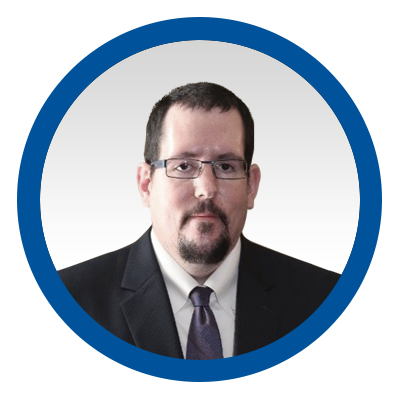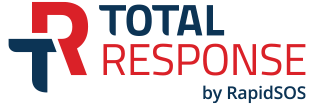Anyone in the 911 industry knows that when call taking protocols are discussed the conversation primarily revolves around Emergency Medical Dispatching (EMD). At face value this makes sense as they are the subset of protocols that many states have opted to mandate for 911 public safety professionals to help ensure that medical requests for service are handled properly. Not to mention when protocols were first created for 911 only medical protocols were created. But roughly 40 years later the question should be asked; why are states mandating that only a third of your call types be handled properly?
”Why do some agencies choose to utilize protocols for EMD, but not for police and fire calls?
We are of course excluding agencies that only handle medical calls for service, or only law enforcement, or only fire service dispatch. But what about everyone else? Why do some agencies choose to utilize protocols for EMD, but not for police and fire calls? After 16 years as a 911 telecommunicator and 7 years at PowerPhone this still baffles me. When I think back to working at my old agency this is the way we did things as well. We were all trained and certified in EMD. But not police or fire despite handling all types of calls. When we did QA the results were quite clear; medical calls received higher QA scores on average than its counterparts. Why? While hindsight is always 20/20 I think I can speak from a relative place of confidence and say an obvious reason was because our training and workflow were more formal, structured, and consistent in regards to EMD. Whereas training and the workflow on how to process law enforcement and fire calls were homegrown training based and 100% reliant on classroom training and live, interruptive CTO instruction.
Trainees and veterans had the benefit of that formal, structured, and consistent EMD training coupled with scripted protocols being accessible to them all the time. Having those EMD protocols in place meant that they didn’t need to rely on memory to recall (or forget) questions that should be asked or PAIs to provide. This also made training new employees significantly easier. A trainee had a constant resource to use while taking medical calls. They always knew what questions to ask and what instructions to provide. As a CTO I didn’t need to repeatedly whisper in their ear the questions they needed to ask or instructions to give. Which was good because if they’re listening to me, they’re not listening to the caller.
”Is it because medical calls are more important? No. All calls coming into a comm center are important. Is it because some still think that PAIs are only applicable to medical calls? That’s an old myth that has been disproven time and time again.
So why don’t we do this for law enforcement and fire calls as much as we do for medical? Is it because medical calls are more important? No. All calls coming into a comm center are important. Is it because some still think that PAIs are only applicable to medical calls? That’s an old myth that has been disproven time and time again as there are vital PAIs that should be given for police and fire calls.
Whatever the issue, PowerPhone recognized this problem decades ago and is why we were the first to introduce protocols for law enforcement and fire service into the 911 industry.
Besides the “why’s” mentioned above, I’m part of many 911 social media groups and aware of the stigma that has arisen around the use of police and fire protocols, especially police. I will even capitulate and agree that some of the concerns raised are valid depending on the protocol system in use. However, those concerns are negated through the use of PowerPhone’s protocols. The biggest concern I generally see raised is that the police protocols have questions in an order that is not always in line with how a call is progressing or can progress, or that the questions they are required to ask every time are not always applicable. In turn, by asking these questions the call taker comes across as inept to a caller when what we want is for our callers to feel like we are confident and knowledgeable in what we are doing. These are valid concerns as not every call is black and white and will not conform to the same line of questioning.
We understand this and is why PowerPhone follows the principle of guided flexibility. Our users do not need to ask a question if the call taker feels it was not necessary. They can also ask questions in an order outside of how they are presented on screen if the situation warrants it. We provide scripted protocols to use, but we allow the call taker to use their experience, intelligence, and decision-making skills at the same time. Training/certification before and the QA process after will help determine if the appropriate decisions were made. Along with guided flexibility we will work with our agencies to tailor protocol content to fit with local requirements and agency specific policy. So, if there is a question or instruction your agency provides for a given call type, we can add it. If we have an instruction or question that your agency is not allowed to provide or ask, we can remove it.
The days of freelance questioning are gone and the 911 industry needs to promote that fact in order for agencies to provide consistent high-quality care to our callers. There need to be systems and processes in place that allow call takers to provide that continuous, consistent and high-quality care. This can only be accomplished through the use of a protocol system. Simply giving a trainee a list of important questions to remember for dozens if not hundreds of call types is neither realistic or achievable. Coupled with the fact that as years go by disparity in questioning grows between how a new employee will process a call and how a veteran employee will process the same call. That disparity is a factor that can lead to inconsistent care and widens the funnel of liability.
”The days of freelance questioning are gone and the 911 industry needs to promote that fact in order for agencies to provide consistent high-quality care to our callers.
PowerPhone commends states that are pro-active in mandating the use of protocol systems even if only EMD. We commend agencies that provide EMD, mandate or no mandate. But as the profession and its professionals begin to get recognized for the important role it and they play in public safety we must make sure that recognition includes ensuring they have the best training and tools to perform their roles at a higher level. The publics expectations of care are raising and so should ours for ourselves. Call Taker is arguably the most important and difficult position in a 911 center. The phone call is where most calls for service originate and the quantity and quality of information that is gathered leads to how that call is dispatched, how field responders respond, and plays a role in the outcome of that call. Having quality training and a tool that provides call takers the method by which they will all, regardless of experience, process that call is vitally important to have in place.
If you are an agency that only provides EMD despite also handling law enforcement and/or fire calls, an agency that does not currently use any protocols, or maybe you’re a PowerPhone customer on the fence about whether you need to employ police and fire protocols. Please consider the importance of handling all calls for service equally well. Your internal training may be top notch, but that is a not a substitute for ensuring consistent call taking across the board through established and vetted protocols. PowerPhone is strongly committed to helping communications centers of any kind provide the best service and care possible. Reach out to us and we will discuss any concerns you may have, or questions you have to help you make an informed decision.

About the Author
Jim Jones is the Content Manager for PowerPhone. Prior to that he served as an Implementation Manager for 7 years supporting Total Response clients worldwide. Before joining the PowerPhone Team Jim served in the roles of Telecommunicator/CTO, Shift Supervisor, and Training Coordinator at a PSAP in Illinois for 16 years.









